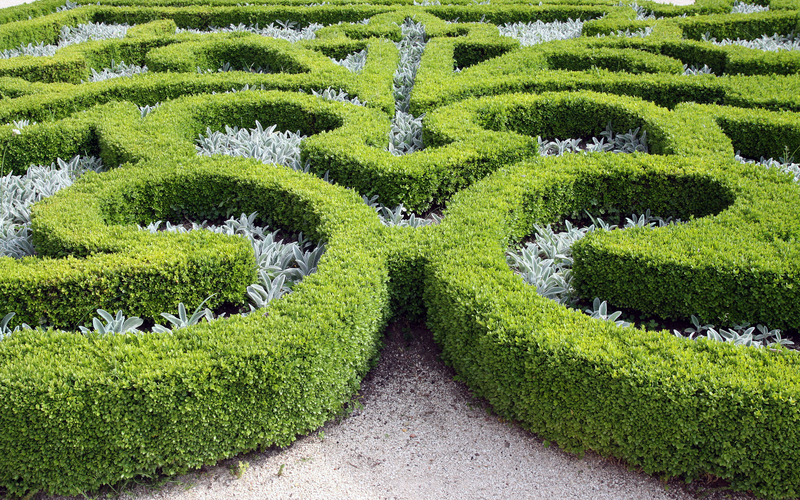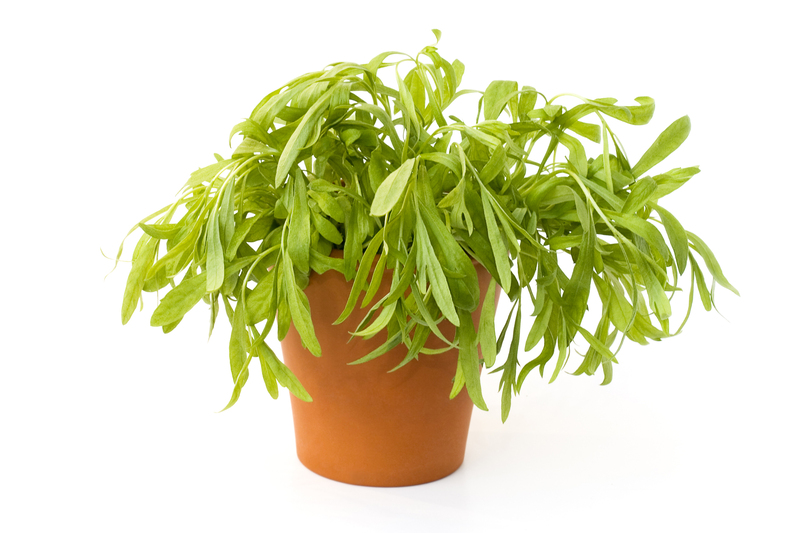Grow with Confidence: 9 Essential Tips for Beginner Gardeners
Posted on 18/08/2025
Grow with Confidence: 9 Essential Tips for Beginner Gardeners
Are you dreaming of lush, vibrant blooms or a bounty of fresh vegetables but feel overwhelmed by the prospect of starting your first garden? Every expert gardener was once a beginner, and with the right advice, you can grow a successful garden with confidence. Whether you're tending a windowsill herb box or eyeing up your backyard for a flower bed, these 9 essential gardening tips for beginners will set you on the path to success. Let's dig in and help your gardening knowledge bloom!
1. Build Healthy Soil: The Foundation for Gardening Success
A flourishing garden starts from the ground up. Soil is the foundation of every successful plant. Too often, beginner gardeners overlook the importance of healthy soil, but investing time here pays longstanding dividends.
- Test your soil: Kits are available at garden centers, or you can send samples to local agricultural extensions.
- Amend as necessary: If your soil is too sandy, add compost or organic matter to improve water retention. If too clay-heavy, add aged manure or organic mulch to help with drainage.
- Feed your soil: Regularly add compost and mulch to supply nutrients to developing plants.
- Avoid chemicals: Opt for organic solutions to encourage microorganisms that benefit your garden's ecosystem.
With nourished soil as your canvas, everything else in your garden becomes much easier.

2. Choose the Right Plants for Your Garden
Selecting plants that thrive in your region is crucial. Don't be tempted by exotic or out-of-zone varieties--it's like asking a polar bear to sunbathe in the tropics!
- Check the USDA plant hardiness zone or equivalent for your country to match plants with your climate.
- Study your garden's light conditions: full sun, partial shade, or shade. Choose plants suited for those areas.
- Start with resilient varieties like marigolds, zinnias, lettuce, or basil for reliable early success.
- Opt for native species--they often need less maintenance and support local pollinators.
Selecting the right plants ensures you're not fighting nature, making your gardening journey as a beginner far more rewarding.
3. Plan Your Garden Layout Before Planting
A well-thought-out design leads to a thriving, beautiful outdoor space. Planning prevents overcrowding, wasted effort, and surprises.
- Map your garden on paper, including existing trees, walkways, and sun exposure patterns.
- Group plants by watering and sunlight needs to simplify care.
- Allow adequate space for mature plant size to avoid crowding and competition.
- For raised beds or containers, ensure easy access for watering and harvesting.
Taking the time to plan your garden layout enables beginners to grow with confidence and minimize rookie mistakes.
4. Learn Proper Watering Techniques
Knowing when and how much to water is as important as planting itself. Overwatering is a common pitfall for beginner gardeners!
- Check soil moisture before watering--stick your finger an inch into the soil; if it's dry, water.
- Water deeply and less frequently to encourage deep root growth.
- Avoid wetting leaves: Water the root zone to help prevent disease.
- Early morning is ideal to minimize evaporation and deter fungal growth.
Gaining confidence in watering is a fundamental gardening skill that leads to healthier, more productive plants.
5. Start Small: Set Manageable Goals
Ambition is wonderful, but starting with a small, manageable space is one of the best expert tips for new gardeners. Small success is better than overwhelming failure.
- Begin with a few containers or a single raised bed.
- Pick three to five types of plants rather than dozens.
- This approach makes it easier to manage, observe, and learn from your first season.
Once you gain some experience and see results, you'll be eager and ready to expand your gardening project!
6. Stay Consistent with Care and Maintenance
Consistency is key. Make gardening a routine, not a sporadic activity.
- Dedicate 10-15 minutes daily to checking on your plants, watering, or weeding.
- Remove weeds regularly to reduce competition for nutrients.
- Deadhead flowers (removing faded blooms) to encourage continued flowering.
- Inspect plants for pests or disease--early intervention is easiest.
Regular attention builds your confidence, strengthens your garden, and gives you a deeper connection to your growing space.
7. Observe, Learn, and Experiment
One of the joys of being a new gardener is seeing nature's lessons unfold before your eyes. Observation and curiosity are your best allies.
- Keep a gardening journal: Note what works, what doesn't, and seasonal changes.
- Experiment with new layouts, varieties, or techniques each season.
- Ask questions at local garden centers or join online gardening forums.
- Use failures as learning opportunities--every gardener has had a few mishaps!
The more attentive you are, the more you'll grow in gardening confidence with every new season.
8. Equip Yourself with the Right Tools
Beginner gardeners don't need every tool on the market, but a solid set of essentials makes a big difference.
- Hand trowel and fork: For digging and loosening soil.
- Pruners or garden shears: For trimming and shaping plants.
- Watering can or hose with a gentle spray attachment.
- Gloves: Protect your hands from blisters and thorns.
- Sturdy shovel: For larger planting projects.
Investing in quality tools--even if just the basics--encourages you to get outside and nurture your budding garden with confidence.
9. Connect with the Gardening Community
Don't garden alone! The community aspect of gardening brings inspiration, camaraderie, and plenty of practical know-how.
- Visit local nurseries and farmers' markets--ask staff for plant advice specific to your area.
- Join a local gardening club or take workshops--most are beginner-friendly!
- Follow gardening experts on social media for seasonal tips and encouragement.
- Share surplus harvests or swap seeds with neighbors to expand your plant palette.
By building connections, you'll discover tips for beginner gardeners that are tailored to your region, and your confidence--and friendships--will naturally grow.
Common Beginner Gardening Mistakes (and How to Avoid Them)
Even with the best advice, slip-ups happen. Here are a few classic errors and simple solutions:
- Planting too early or late: Wait until the risk of frost has fully passed for your region. Reference local planting calendars.
- Overcrowding: Follow spacing guidelines on plant tags--even if the seedlings look far apart now.
- Neglecting soil health: Don't plant without preparing the soil. A little compost goes a long way!
- Impatience: Plants grow at their own pace. Give seeds and seedlings time; resist the urge to overwater or add extra fertilizer hoping for faster results.

Why Gardening with Confidence Matters
Starting your garden journey may seem daunting, but these beginner gardener tips will ensure you develop a green thumb and a love for nurturing plants. Gardening boosts mental well-being, deepens your connection with nature, and can provide nutritious homegrown food.
- It teaches patience, problem-solving, and the value of daily attention.
- It fosters a healthy lifestyle and offers a rewarding escape from screens and stress.
- Watching your efforts sprout, bloom, and bear fruit teaches confidence and perseverance.
Final Words: Your Gardening Journey Starts Now!
With these 9 essential gardening tips for beginners, you're equipped to grow with confidence and create an outdoor (or indoor) space you'll cherish. Remember-- every thriving garden starts with a single seed, and every skilled gardener began by taking those first small steps.
Embrace trial and error, enjoy the journey, and celebrate each green success along the way. Share your experiences, ask for help, and delight in the simple magic of watching life flourish under your care.
Now, go get your hands dirty--happy gardening!
Frequently Asked Questions on Beginner Gardening
-
Q: What's the easiest plant to start with for new gardeners?
A: Herbs like basil, mint, and parsley are easy, as well as marigolds for flowers and radishes or lettuce for vegetables. -
Q: How often should I water my plants?
A: This depends on the plant and weather--generally, water when the soil feels dry an inch below the surface. -
Q: How do I know if my garden has enough sunlight?
A: Most edible plants and flowers need 6+ hours. Use a sunlight mapping app or observe your garden throughout the day. -
Q: Are there gardening apps for beginners?
A: Yes! Popular options include Gardenate, PlantSnap, and From Seed to Spoon.
More Resources for Building Gardening Confidence
- The Old Farmer's Almanac Gardening Guide
- University Extension Vegetable Gardening Tips
- Royal Horticultural Society Beginner Guide
Ready to plant the seeds of success? Share this guide with a fellow new gardener and start growing with confidence today!
Latest Posts
Elevate Your Outdoor Space with Minimalist Zen Garden Design Techniques
Innovative Low-Maintenance Gardening without Breaking the Bank
Empower Climate Action with the Simple Act of Gardening

